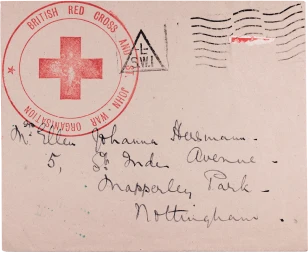Scroll to explore Ellen's journey
1 Königsberg, East Prussia 1920s - 30s
“My name is Ellen Rawson and I was born on 17th January 1922 in Kӧnigsberg in East Prussia, a former kingdom of Germany. I grew up in an extremely happy family. My mother was very outgoing, always friendly, smiling and doing things for others. My father was a very tall and thoughtful man. He was a loving father, but we didn't see him very much because of his work. I remember always kissing his hand because he was so tall!"
2 Königsberg, East Prussia 1922 - 1939
"When Hitler came to power, life didn't change very much to begin with. My father carried on in the family wholesale and retail cloth business. But as the years went on, things got very much more difficult and I had to leave school when I was fifteen and a half. I remember while I was still at school that Jews were not allowed to go the cinema or theatre or take part in anything."
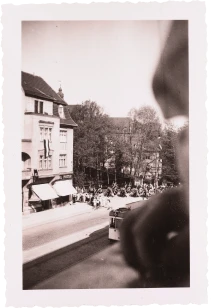
3 Mannheim Nov-38
"When Kristallnacht, the 'Night of Broken Glass,' happened in 1938, I was away from home in Mannheim, learning sewing. I'll never forget the noise that night in Mannheim - the rabble going down the road, smashing things wherever they found Jewish flats."
4 Berlin, Germany Jun-39
"I left in June 1939. The whole family came to see me off at the station in Kӧnigsberg and my father travelled with me to Berlin to join the Kindertransport train. I remember one of my cousins racing down the platform as the train was starting, just to say goodbye to me. I was a bit tearful, but I didn't take it all that seriously. I thought I would see them all again."
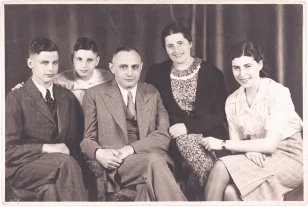
5 London, UK - 1939
"We were told there was a suspected case of scarlet fever on the train and people were asked whether they wanted to take us or not. Our little group wasn't wanted, so we were taken to Islington hospital and spent over a week there. The scarlet fever turned out to be a false alarm. Eventually, the Committee lady came and collected me. She had lost her domestic help at home, so I was left to cook, clean and do everything in the house. It was horrible. I just sat on the stairs and cried."
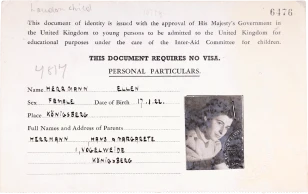
6 Maidenhead, UK
"I was sent from one family to another working like this, usually for just a fortnight. I must have stayed with at least eight or ten families. Sometimes, I was happy with the family, sometimes not. I was hoping to go to a trade school and learn tailoring, but then war broke out and I was evacuated."
7 Staffordshire, UK
"It was all so very, very different from my home life in Germany. My brother Gert came to England as well on an agricultural working permit."
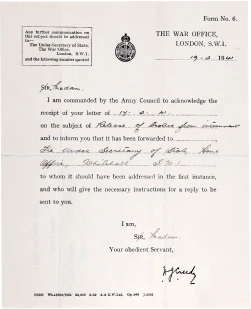
8 Nottingham, UK - 1941
Eventually, Ellen married and moved to Nottingham where she settled. In later life she began to share her testimony about what happened to her during the Holocaust.
